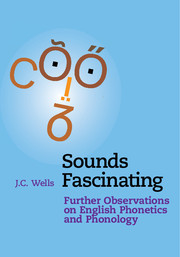12 - Transcription
from PART II - SOUNDS AND LETTERS
Published online by Cambridge University Press: 05 September 2016
Summary
Explicitness in Transcription
When I talk in public about pronunciation dictionaries one of the questions I am frequently asked concerns the level of phonetic detail that each dictionary entry ought to show.
Why don't we show the aspiration of the initial plosive in timetaɪm, thus tʰaɪm? Why doesn't the dictionary show the glottal stop as a possibility in rightraɪt, that is, raɪʔ? (After all, that's how it is frequently pronounced.) Why don't we show that the lateral in sellsel is dark, thus seɫ? (Or perhaps we ought even to write sɛ̈ɫ, showing what happens to the vowel in this environment. Not to mention such further possibilities as sɛ̈o.)
The usual answer is that each of these would constitute allophonic as opposed to phonemic notation. Despite the difficulties that modern linguistics has with the notion of phoneme, the point remains: the aspiration, the glottalling, and the velarization are predictable by rule, ‘context-dependent’. Therefore they do not need to be symbolized explicitly each time they happen.
Furthermore, allophones at the edges of words typically apply only in certain environments. A glottal stop in right nowraɪʔ naʊ will pass unnoticed in mainstream BrE or AmE. But in right away, thus raɪʔ əweɪ, it would convey a particular regional/social message. Different phonetic contexts demand different allophones.
The lateral at the end of sell is not dark in all contexts. In a phrase such as sell it, with a vowel following, it is clear. Marking it as dark in the dictionary entry would actually be misleading.
… But, you may say, in LPD you nevertheless show one predictable allophone, namely the voiced (‘flapped’) /t/ of American English in words like city, transcribed as ˈsɪt̬ i. My defence to this charge of inconsistency is that the conditions governing the use of this allophone are rather complicated, while arguably for some speakers it is anyway not an allophone of /t/ but an instance of the phoneme /d/ (many Americans reject this view, even though they may pronounce atom and Adam identically most of the time).
- Type
- Chapter
- Information
- Sounds FascinatingFurther Observations on English Phonetics and Phonology, pp. 108 - 122Publisher: Cambridge University PressPrint publication year: 2016

